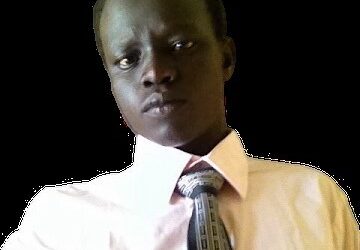By Theem Isaac Machar Akot
In South Sudan, it is either you are going through a lot, or you are about to enter a lot, or a lot is going through you. A lot is going on with a lot of us. A nation struggling with suffering and a lack of priority for its citizens. A paradoxical country where wars unite the citizens but the food divides.
Despite being a country whose population has been greatly affected by war, there are still other dangerous life-ruining disasters posing threats. If death rates go past birth rates, Maternity death rates are uncountable, and sadly, youngsters die routinely. What difference would this make from the gunfight?
Life in South Sudan seems to be a curse. The country is sick. A country where we were born in hardships, grew in hardships, and still, we shall bear children who will suffer with us. The accrued level of turbulence cannot be told. The extremity of turmoil in this nation is so enormous that one can even think about it in a coffin. One is coerced to disagree with the existence of God.
I, most of the time hear of a forthcoming election towards the end of this year. Who will vote, and the citizens are finishing? Diseases, hunger, and alcohol are affecting the populace day by day. This is a dumping ground for the money-minded neighbouring countries; it is not a sovereign nation. The importation of unstandardized alcoholic drinks into the country is adversely affecting the country.
It baffles me to see a country whose population of youth surpasses that of the elderly losing young people at a very high rate to controllable occurrences and diseases. And the politicians carrying their protruding bellies lie to the nation that they care about the masses.
South Sudan is the only compost pit in East Africa and Africa as a whole, where all unwanted foodstuffs and alcoholic drinks are thrown. A country where anything manufactured is thought to be eatable without thinking of the adverse effects it poses. Dangerous alcoholic drinks exempted in countries where leaders are proactive are imported.
The mass death rate starts in the city where the president lives at the grassroots. Most of the diseases are water-borne. Most of the water drunk here isn’t safe for human health. How would the populace be healthy since the water project is owned by foreign investors?
Women and youth empowerment are no more. When I first arrived in Juba, I naively thought that the prevalence of women and youth smoking indicated a lack of ability to work. However, I was surprised to learn that the government does, infact, empower them. It’s disheartening to see that most hotels in the city are dominated by foreigners, with cleaning, clerical, and managerial jobs going to them instead of the local citizens. This results in an unbalanced distribution of opportunities, where foreigners are enjoying the benefits of being indigenous while the indigenous people are left with little to no say in their own country’s affairs. The situation is further exacerbated by the fact that citizens seem to be leaving like foreigners, compounding the issue. The government must implement regulations that ensure equal opportunities for all its citizens, regardless of gender or age.
In South Sudan, the people have been united by the devastating effects of war. However, despite this shared experience, the country faces a significant challenge in the form of food insecurity. The phrase “war unites people, but food divides” suggests that while the people may be united in their struggle for survival and peace, they are ultimately divided by the scarcity of resources, particularly food. This division can lead to tension, competition, and even conflict among communities, further exacerbating the already fragile situation in the country. The government and international aid organizations must work together to address this issue and ensure that all citizens have access to sufficient and nutritious food. For this matter, the masses look malnourished and destitute.
Addressing these issues needs Jesus because the leaders are hearing repellents. They cannot hear.
Have a blessed day!
The author is a third-year student at the University of Juba School.




